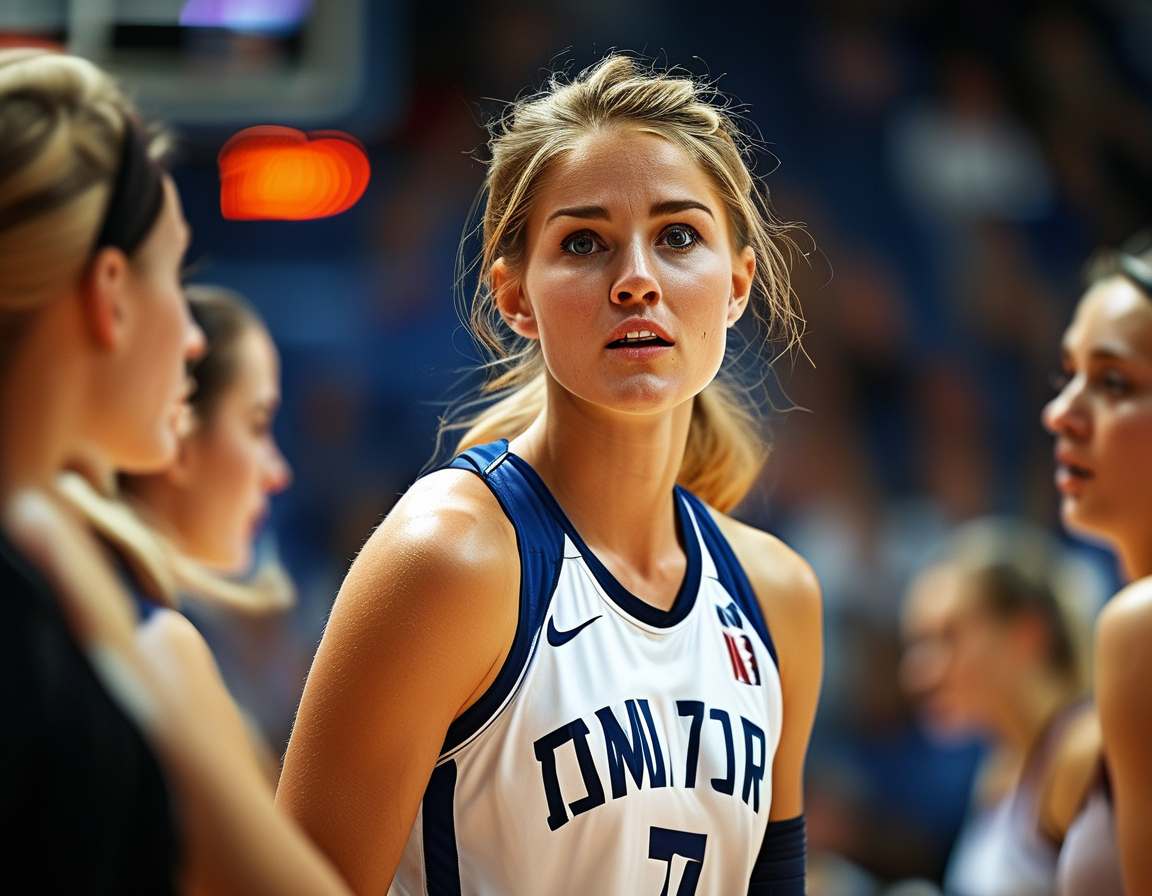
Caitlin Clark’s rapid ascent in the WNBA has sparked heated discussions about race and privilege in sports. Recently, Sunny Hostin, a co-host on The View, suggested that Clark’s stardom is tied to her ‘white privilege.’ This remark didn’t sit well with many. Barstool Sports founder Dave Portnoy fired back, labeling her comments as ‘racist.’ What does this mean for the discussion around race in sports?
On a recent episode, Hostin commented on the societal advantages that players like Clark enjoy, triggering a wave of backlash. She highlighted the complexities faced by other athletes, specifically black female players, who often struggle to find visibility in the sports world. Hostin pointed out how Clark’s attractiveness and race give her an edge. How is this perception shaping the future of the league?
Portnoy’s response was swift and blunt. He didn’t hold back, tweeting, ‘Somebody tell this racist all these players are superstars and white and nobody cared till Caitlin Clark. It’s the way she plays.’ His words resonate with many who believe talent should be the focus. Herein lies the heart of the matter: how do perceptions of race and privilege influence our understanding of athletic success?
The debate has turned personal for many. Personal stories illustrate how these topics can ignite passionate conversations among fans and analysts alike. Some fans rally behind Clark, celebrating her record-breaking performances and colorful personality. Others feel the sting of Hostin’s remarks. Does success in sports hinge on race or skill? In Clark’s case, the jury is still out.
Hostin mentioned issues regarding visibility for black women in sports, citing a statistic: ‘Seventy percent of the WNBA is black. A third of the players are in the LGBTQ+ community.’ This raises essential questions: are we overlooking crucial contributions from diverse athletes in favor of narratives that align with the status quo? What does it mean to champion one player while potentially sidelining others who have paved the way, like Brittney Griner?
The dynamic of race, privilege, and prestige in sports is complex. It mirrors broader societal discussions about diversity and representation. Are fans drawn more to Clark because of her skills or her image? That’s a loaded question. Clark is undeniably a talented player, breaking records and exciting crowds, but so have other players who lack the same visibility.
Some argue that discussions of privilege distract from the fundamental achievements of athletes. Co-host Alyssa Farah Griffin expressed that her fandom started with watching Clark play. She emphasized that it wasn’t race that drew her in. Many fans echo these sentiments — they appreciate the game first and foremost.
Furthermore, Whoopi Goldberg advocated for the recognition of Clark’s accomplishments. She pushed back against the idea that her success can be wholly attributed to her race. It speaks volumes about our need for a nuanced understanding of success in sports, where hard work shouldn’t be overshadowed by societal issues.
Engaging in these discussions is crucial, but it’s vital we navigate them thoughtfully. The example of Clark brings forth the realization that athletes, regardless of background, have their journeys shaped by numerous layers. In trying to dissect privilege, can we also acknowledge skill and dedication? Undoubtedly, each player’s story matters — whether they are breaking records or facing hardships.
As Clark continues her early career with the Indiana Fever, the spotlight on her will only grow. So far, despite the challenges — including a rocky start with no wins — she has created buzz around the WNBA, driving ticket sales and engagement. What will this mean for other players in the league? Will they also receive the spotlight they’ve long deserved?
As discussions swirl around privilege and race in sports, one thing remains clear: Caitlin Clark is here to stay. Whether we choose to focus on her race, her talent, or both, the conversation is vital. It’s important to continue discussing these issues so we can foster a more inclusive environment in the world of sports.
Leave a Comment